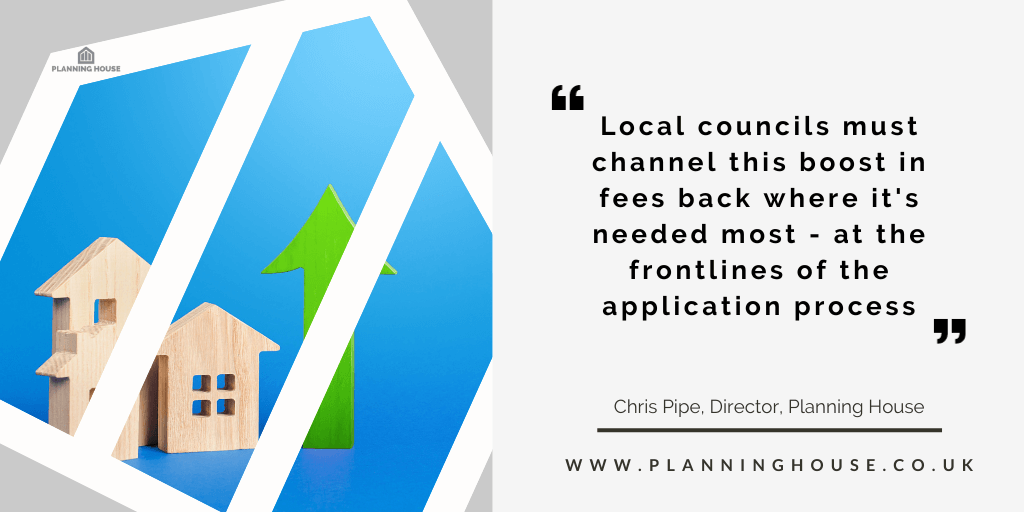Developers and consultants need to be aware that changes are coming to planning application fees in England starting December 6th. According to new regulations approved last month, fees for submitting major development proposals will increase by 35%, with all other applications rising 25%.
In addition, there will now be annual indexation of up to 10% on fees beginning in April 2025 to account for inflation. This should help planning authorities keep up with rising costs over time.
One key tweak removes the ability to submit repeat applications free of charge within 12 months (a free-go). However, you’ll still retain the ability to tweak and resubmit an application if it was withdrawn or refused in the preceding 12 months, subject to all other conditions for the free-go being met.
Non-major applications will also see a reduced determination period from 26 to 16 weeks under the new Planning Guarantee time frames in a bid to encourage quicker decisions.
A new £120 fee is also being introduced for prior approval applications related to Crown defence site redevelopments.
These fees will apply from 6th December 2023 as per the legislative amendments: ‘The Town and Country Planning (Fees for Applications, Deemed Applications, Requests and Site Visits) (England) (Amendment) Regulations 2023’, this DOWNLOAD provides a guide to the forthcoming fees.
The new fee hikes for planning applications are estimated to generate millions for local authorities each year. However, critics may be sceptical as this revenue is not formally protected solely for planning departments, there are no guarantees the additional funds couldn’t be diverted elsewhere within council budgets. Planning has long faced pressure from stretched resources and staff shortages.
Supporters argue the cash influx presents an opportunity to strengthen underfunded teams at a time when development needs are high. But only time will tell if the money translates into more planners available to review proposals in a timely manner.
For the changes to truly make a difference for hard-pressed planning staff and frustrated applicants, local councils must demonstrate a clear commitment to channelling this potential boost back where it’s needed most – at the frontlines of the application process, similar to the long abolished Planning Delivery Grant (PDG) which was awarded to Planning Departments annually when targets were met. The PDG focused Council’s on ensuring planning teams were resourced and decisions made in a timely manner. Only time will tell if this fee rise will benefit developers and ultimately the provision of much needed houses and the economy.


